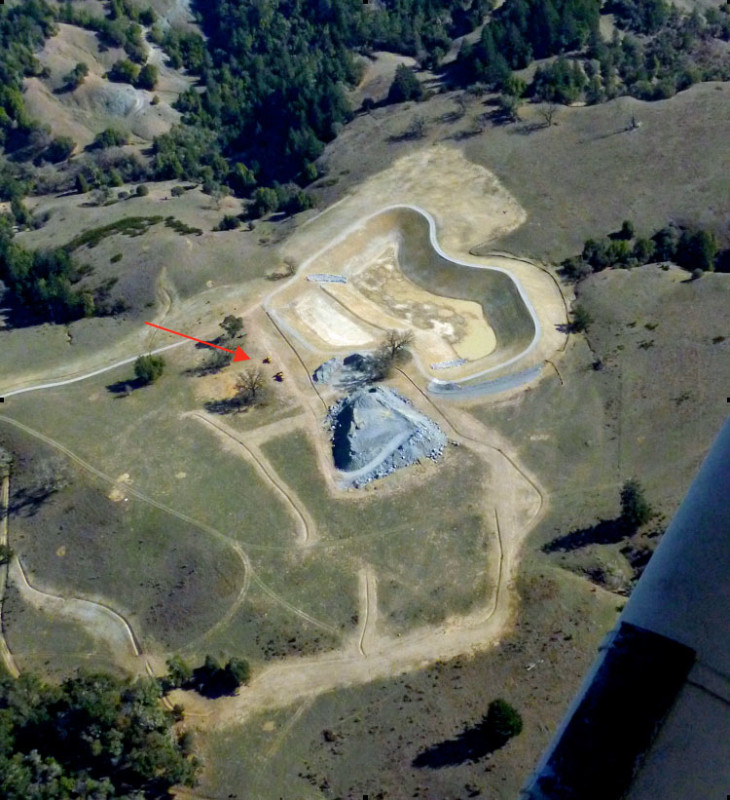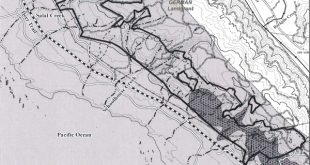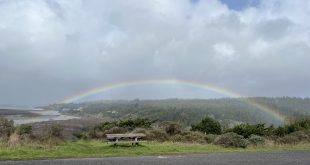Friends of Gualala River (FoGR), along with Center for Biological Diversity and Sierra Club, has filed a suit against Sonoma County to close a major regulatory loophole. This time it’s not our typical campaign to stop destruction of redwood forest. It’s to fix a serious problem in a Sonoma County permitting process that is allowing developers to circumvent the California Environmental Quality Act – the centerpiece of California’s economic democracy. And it affects everyone, not just Sonoma County residents, who get water from the Gualala River and who value the watershed, its redwood forests, and the species living within it.
The California Environmental Quality Act (CEQA) gives citizens a voice in what happens in their community, allowing them to take action to protect their health and local environments. CEQA makes sure that those who will be most affected by development have the right to get the facts about the environmental impact of proposed projects and to seek alternative project designs that will lessen or eliminate the potential negative impacts.
Sonoma County’s vineyard erosion control ordinance (VESCO; officially the Grading, Drainage, Vineyard & Orchard Site Development Ordinance) was set up to require new or replanted vineyards or orchards to meet standards within the Sonoma County Code. In practice, this ordinance has created a loophole in the County’s vineyard permit process that allows the evasion of CEQA environmental analysis. It promotes the issuance of permits for water-demanding vineyards without any public review or environmental analysis of impacts to stream flows or fish populations — even during extreme droughts like the one we’re now suffering.
Developers claim that with a VESCO permit in-hand, they don’t need to conduct the thorough analysis of potential impacts that CEQA requires.
Here’s how that’s a problem: In legal language, the County claims to issue VESCO permits to developers in a “ministerial”, rather than “discretionary,” way. “Ministerial” describes a governmental decision involving little or no judgment by the public official as to the wisdom or manner of carrying out the project. A ministerial permit would only require review to see if the project met set standards without the exercise of judgment or deliberation in approving or disapproving a particular activity. We claim that there is ample evidence that the county approves VESCO permits in a discretionary manner, rather than a ministerial one. If that is the case, VESCO is not a true ministerial permit, is not exempt from CEQA and therefore, by law, a proper and thorough discretionary CEQA review is required.
FoGR, along with the Sierra Club and Center for Biological Diversity, has filed a suit against Sonoma County to address this serious problem.
As you read this, one developer is already using this loophole for a proposed 54+ acre vineyard above Haupt Creek, near the Clark’s Crossing/Annapolis Road bridge. The project will be situated above and upstream of this creek — a steelhead-spawning creek with some of the last potential viable habitat for salmon. Unless we put an end to these regulatory end-runs, the Gualala River and the watershed will be subject to ongoing threat of dewatering, erosion, pollution, vineyard sprawl, and destruction by developers.
The photo below is from the site, taken this January at the beginning of the installation of the Haupt Creek project. The reservoir was separately permitted outside of VESCO, using a “piecemealed” grading permit. Developers commonly try to piecemeal projects by which large projects are analyzed incrementally in parts to make the environmental impacts appear smaller to the overseeing agency. Having these projects properly analyzed as a whole under CEQA would put an end to this piecemealing. Success with our suit would have that effect.

California is one of the only states which does not regulate groundwater. FoGR is working to support regulation of groundwater in order to ensure adequate base flows for steelhead and salmon-spawning streams. FoGR is also working to make sure that new vineyards do not evade environmental laws like CEQA that require them to analyze and disclose all potential impacts of wells or surface water diversions on streamflows.
For an analysis of the North Bay aspects of pending legislation to regulate groundwater, and wine industry opposition to it, read “Of Water and Wine: North Bay winegrowers face state oversight”, by Tom Gogola, published in The Bohemian, July, 2014.
Please support FOGR’S efforts to close this destructive loophole.
Donate online:
or send a check to:
Friends of Gualala River PO Box 1543 Gualala, CA 95445 Friends of Gualala River Protecting the Gualala River watershed and the species living within it
Friends of Gualala River Protecting the Gualala River watershed and the species living within it


